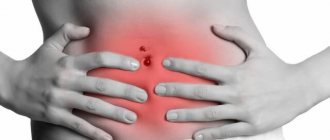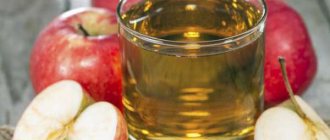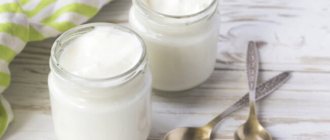What symptoms are we talking about? • Increasing pain or discomfort in the lower abdomen half an hour to an hour after eating dairy products • Great urge to go to the toilet • Gas formation and bloating • Heaviness
These symptoms indicate that your body is producing little or no lactase enzyme. This enzyme is needed to process milk sugar - lactose. Otherwise, unprocessed milk sugar begins to ferment. The resulting chemical reactions produce a lot of CO2, which we experience in the form of gas formation and other consequences.
Lack of the enzyme lactase is a well-known and common problem in both adults and very young children. For babies with lactase enzyme deficiency, special drops are used, which the mother puts into the baby's mouth 5 minutes before breastfeeding. If the baby is on formula, then a lactose-free mixture is selected.
In adults with a lack of the enzyme lactase, the story is almost the same. In many countries of the world where the problem is widespread, tablets are sold that, when taken together with dairy products, lead to the complete absorption of milk sugar. And since the tablets are an enzyme, they are absolutely harmless. (Do not confuse Pancreatin, Mezim and Creon with enzyme tablets - their long-term use leads to the inability of the body to produce enzymes on its own!)
Also, if there is a deficiency of the lactase enzyme, many try not to drink milk or eat dairy products or replace them with lactose-free ones.
It is worth noting that lactase deficiency is observed mainly in southern peoples. However, the problem also occurs in the northern regions, but much less frequently.
The symptom of stomach pain after milk may indicate internal pathologies of the gastrointestinal tract, allergies to a dairy product. Such consequences are possible from a lack of lactase production to process lactose. It is important to choose a natural, fresh product with a minimum amount of impurities. A doctor will help you get rid of the disorder after identifying the exact cause of pain in the abdominal area. Boiled milk, drunk in the afternoon in an amount of no more than 500 ml, does not cause such a reaction.
Product benefits
Benefits of dairy products:
- rich in vitamin A, B, C, D, K;
- calms down, relieves stress and neuroses;
- enhance the functionality of the central nervous system and brain;
- strengthen the musculoskeletal system;
- improve sleep;
- help in losing excess weight;
- improve skin condition;
- increase protein concentration in the body;
- reduce the acidity of hydrochloric acid;
- relieve vitamin deficiency;
- cleanse the body of harmful substances.
Milk reveals its beneficial properties if consumed in the afternoon and warm.
Properties of milk
Milk is essential for the body at any age. If you regularly consume it, your body will get:
- Natural vitamins – A, D, C, K;
- Calcium, which is necessary for bones, teeth, central nervous system and brain;
- Vitamins B1 – thiamine, B2 – riboflavin, B9 – folic acid;
- Magnesium and phosphorus;
- Sodium and iron;
- Iodine and ash.
Calcium will help reduce body fat and prevent the development of osteoporosis. In women, bones can become fragile due to hormonal changes during menopause.
Vitamin B2 allows you to maintain youthful skin for a long time. Because of all these properties, it is not recommended to exclude milk from your diet.
Milk is recommended for anyone with high stomach acidity. It is useful to use in case of poisoning with harmful substances or alcohol intoxication.
Can milk cause stomach pain and why?
Pain in the stomach of an adult from drinking milk occurs due to the complex carbohydrate, milk sugar - lactose. In old age, the production of the enzyme that breaks down carbohydrates (lactase) becomes more difficult. This causes disorders of the patient's digestive system. The child does not have such a problem. If your stomach hurts for this reason, you need to buy a lactose-free dairy product. The pain syndrome is caused by synthetic components and pigments that are part of the drink on supermarket shelves. A natural village product does not cause such a problem if the cow is healthy and the milk is not contaminated. In addition to stomach upsets, other symptoms (skin problems, hair problems) may occur.
Nutritional characteristics and genetics
The activity of this enzyme and its changes over time are programmed in the genes. If traditional nutrition in the centuries-old history of a nationality or race involves active consumption of milk, then the enzyme does not lose activity, a person can drink milk calmly all his life, he has inherited such characteristics from his parents. If the diet involves little or no milk consumption, with age the necessary enzymes are produced less and less and intolerance gradually develops. In such people, genes that code for the production of necessary enzymes are lost or inactive. For example, if this is Japan, then its traditional foods are rice, cereals, plant foods, seafood, fish, and raising cows and drinking milk is not common among them. Hence the peculiarity of the operation of the gene encoding the necessary enzyme, which has been formed over centuries. But in Holland and Denmark, where livestock farming is actively developed and many people consume milk, only 2% of the adult population cannot tolerate this product.
What to do?
The best option to protect milk and make it less irritating to the digestive system is to boil it. Pasteurization relieves bloating, stomach pain and other side effects. This will reduce the beneficial properties, but the effect will be just as positive. It is important to remember moderation and drink no more than 2 glasses a day. If negative symptoms appear, you should not postpone a medical examination, but seek advice from a gastroenterologist. In case of individual intolerance or allergy to milk, it is better to completely stop using it.
Quite often, adults experience discomfort after drinking milk. The stomach may hurt or growl or swell. What causes such signs? Why does milk make my stomach hurt? Is it healthy for adults to drink it?
The benefits of milk
Milk contains several types of lactic enzymes, carbohydrates, proteins, B vitamins, vitamins A, D, C, K. The usefulness of this drink is undeniable.
It has a positive effect on the human psyche. Elements such as phosphorus and calcium, which milk is rich in, are needed not only for the strength of teeth and bones, but also for the normal functioning of the central nervous system and brain. The B vitamins present in the drink help combat depression and stress. Milk is also an excellent remedy in the fight against insomnia: drinking a glass of this fresh drink at night will help you sleep well. In addition, this drink increases the ability to study, relieves nervousness, stress and fatigue.
Milk treats obesity because the calcium present in it promotes fat burning and blocks its excessive accumulation. It contains plenty of vitamin B2, which has a beneficial effect on the skin and converts fats and carbohydrates into energy. Most doctors do not advise eliminating milk from your diet, especially when you need to lose weight.
Casein found in milk is better digestible than any other protein. Literally a couple of hours after taking this drink, an increased formation of proteins is noted in the body. 500g of milk is 20% of the daily protein requirement for a person. This is why it is so important to consume milk for people who work physically.
You can often hear complaints that milk is not digested, that after drinking milk your stomach hurts. The reasons may be different, much depends on the individual characteristics of a particular person. But the main reason why milk is not digested is that these people consume milk cold and during the daytime. This is precisely what causes numerous problems, especially if it is store-bought milk - after all, it is not as healthy as homemade milk. This product should be consumed warm in the evening, from 6 to 9 pm or early in the morning before 7 am. Just this mode of consumption of this healing product eliminates problems with its absorption.
There is an opinion that by taking milk, you can successfully treat many diseases, for example, osteoporosis. This is when bones become too brittle due to lack of calcium. This is especially true for women of pre-retirement age. They are the ones at risk for this disease. And milk will just replenish calcium reserves, and here it is almost completely absorbed - 97%, which cannot be said about other products. This is because milk contains substances that ensure its absorption - magnesium, phosphorus and vitamin D. Therefore, older women should include this product in their diet.
- Milk reduces the acidity of the stomach, which helps relieve heartburn.
- Milk, due to its content of amino acids, mineral salts, fatty acids, vitamins, especially vitamin B2, cures vitamin deficiency.
- If you are poisoned by alkali, acid or alcohol, you can avoid serious consequences by drinking a liter of warm homemade milk.
Milk for adults
In order for milk to be processed in the body, the presence of an enzyme, lactase, is necessary. But when a person grows up, not enough of it is produced in the body. This occurs due to physiological changes that occur with age and more.
When drinking milk, due to a lack of lactase, pain is felt in the intestines and stomach.
Professionals call this lactase deficiency.
Reasons why lactose may not be processed:
- Congenital lactase deficiency;
- Transient failure in premature infants;
- Lactase deficiency in adults.
If a person drinks milk and then develops diarrhea or abdominal pain, he will refuse to use this product. But you don't need to be so categorical. You can find a simple way out of this unpleasant situation. Today you can buy lactose-free milk. There should be a mark about this on the packaging.
It is possible to develop an allergy to casein. In this case, the body perceives milk protein as foreign. During the process of protection, immunoglobulin E begins to form. The amount of histamines increases and external manifestations of allergies are observed. This may be a rash, disruption of the cardiovascular system, difficulty breathing, improper functioning of the stomach and intestines.
Breast milk contains milk proteins - lactoferin, lactoglobulin. They can also provoke milk intolerance and cause allergies, which is why adults get stomach ache from dairy.
Why do problems with milk and abdominal pain not always occur?
It was already said above that the problem is usually dose dependent. A certain, but very small, enzyme activity in the intestines is still observed, and dairy products, dishes with milk or whole milk in coffee, drinks or cocktails, and food products are digested relatively calmly. But if the intestines receive a large volume of milk at once, for example 1-2 glasses, there is simply not enough lactase, then fermentation occurs, gases swell the intestinal loops, causing abdominal pain. Enzyme activity may suffer during intestinal inflammation (enteritis), when taking excess carbohydrates (milk with sweet rolls, cookies), if there is intestinal dysbiosis. In this case, you can get rid of diarrhea or abdominal pain only by temporarily giving up milk or sharply reducing the volume of its consumption.
How to drink milk correctly
The daily intake of milk is about two glasses to provide the body with all useful substances. Therefore, if there are no obvious contraindications to drinking milk, there is no need to refuse it.
Raw milk can be boiled or purchased pasteurized without lactose. But at the same time it will contain less nutrients.
If individual intolerance is observed and your stomach hurts from dairy, then you should definitely consult an allergist or gastroenterologist. On the pages of our website you can find out a lot of useful information about the functioning of the digestive organs.
Stomach hurts after milk in an adult
Doctors identify several main factors that can lead to diarrhea in an adult immediately or some time after drinking milk.
Bloating is a pathological condition that is characterized by a large amount of gas accumulation, leading to abdominal pain and colic.
Bloating and abdominal pain can bother anyone. It is often not at all clear what caused such a reaction.
Congenital deficiency of the enzyme lactase, common mainly among people belonging to the Asian race.
Any disease that affects the cells in the small intestine that produce lactase, such as inflammatory diseases and even influenza. This condition causes “secondary lactase deficiency.” This is a temporary problem that disappears as soon as the disease passes and the damaged cells are restored and begin to produce enzymes again.
The esophagus is the link between the mouth and the stomach through which food moves. Ensuring that food quickly enters the stomach after swallowing is the main function of the esophagus. Dysfunction is accompanied by pain in the esophagus, difficulty swallowing when passing food.
Pain in the esophagus interferes with overall performance and food intake.
Clinical picture
If a person has diarrhea, and there is no opportunity to consult with a specialist, he should try to independently figure out why this happened.
Diarrhea after milk may have the following symptoms:
- A large amount of liquid in the stool.
- Severe cramping pain in the abdomen.
- Increased gas formation.
- Bloating.
If symptoms vary when consuming dairy products, you need to take into account the fact how much milk a person drinks. The fact is that enzymes can be produced, but in smaller quantities than required.
Therefore, with moderate consumption of dairy products, diarrhea is not observed, but with excessive consumption, it causes severe discomfort to the person.
Dairy products for stomach ulcers, milk, kefir, cottage cheese and cheese
Stomach and duodenal ulcers are an unpleasant and very dangerous disease. A sign of the development of pathology can be acute pain and cramps in the stomach, most often occurring after eating. That is why, in order to avoid a difficult period of exacerbation, it is necessary to follow a certain diet. And the main components of therapeutic nutrition are dairy products.
Cow's milk, even in pasteurized form, contains a huge amount of useful microelements and vitamins. Of course, most of the milk is water, but the rest is proteins, carbohydrates, fats, minerals and vitamins. In addition, milk contains special substances that significantly increase the body’s immune defense, as well as hormones and enzymes.
Milk is a staple on the sick menu for good reason. The drink helps the stomach work more actively, easing the symptoms and course of the disease as a whole. Milk contains many beneficial substances for patients with peptic ulcers, but tryptophan, methonine and lysine deserve special attention. In addition, the product contains a huge amount of calcium and phosphorus.
These microelements are very useful for a healthy person, and with a stomach ulcer they become doubly in demand. Milk for stomach and duodenal ulcers can be drunk in any form.
Do not forget that goats are also the supplier of the dietary product. The milk of this animal is also useful for this pathology.
But goat produces a fattier and heavier product, and therefore it must be diluted with boiled water 1:1.
Kefir is the most popular among all fermented milk products. The basis for the product is whole cow's milk. A fermented milk product is obtained by adding fungal kefir starter to milk, which causes alcoholic and lactic acid fermentation.
Kefir is a biologically valuable and, very important, quickly digestible product. And just like milk, it is recommended by doctors for gastritis and peptic ulcers.
But we must remember that during the period of exacerbation of the disease, kefir is strictly prohibited. A little later, when the peak of the exacerbation has passed, you can include fresh and always non-acidic kefir in the daily menu. In this case, you must follow the prescribed dietary nutrition system.
In principle, kefir can be included in the menu again when severe pain disappears. And it is best to warm the product slightly before use, but so that it does not “curdle.” You should drink kefir separately from meals, as a light snack. During the period of remission of a peptic ulcer, kefir can be consumed without any restrictions.
It is especially useful to take a mixture of kefir and unrefined vegetable oil at night. Just add a teaspoon of oil to a glass of drink and drink before bed. The course of treatment is three months. This mixture of products perfectly heals the ulcerated surface of the gastric mucosa.
There is a double opinion about drinking milk during a stomach ulcer.
Some nutritionists categorically prohibit the consumption of milk, as it promotes the release of acid in the stomach, which can aggravate the situation.
But if you look at therapeutic diet No. 1, you can see milk in the list of allowed products. Still, I advise you to listen to your body. If the pain increases after milk, then it is better to refuse it.
Carbonated drinks cause pain
To prevent a person from experiencing diarrhea when drinking milk, he should always boil it first. In its original form, you can only eat cottage cheese, kefir or sour cream.
People who know they have milk intolerance should stock up on anti-diarrhea medication and avoid overusing the product in question.
It is better to consult a nutritionist who will determine the permissible dose of dairy product per day.
If a person understands why he has diarrhea, he can save himself from discomfort and unpleasant situations in the future.
One of the foods that should be excluded from the diet is soda, in any form. Carbonated drinks contain high levels of carbon dioxide.
They aggravate bloating and cause pain. Every time a person takes a sip of soda, it simply increases the amount of gas in the stomach and digestive system as a whole.
Carbonated drinks cause pain
To prevent a person from experiencing diarrhea when drinking milk, he should always boil it first. In its original form, you can only eat cottage cheese, kefir or sour cream.
People who know they have milk intolerance should stock up on anti-diarrhea medication and avoid overusing the product in question.
It is better to consult a nutritionist who will determine the permissible dose of dairy product per day.
If a person understands why he has diarrhea, he can save himself from discomfort and unpleasant situations in the future.
One of the foods that should be excluded from the diet is soda, in any form. Carbonated drinks contain high levels of carbon dioxide.
They aggravate bloating and cause pain. Every time a person takes a sip of soda, it simply increases the amount of gas in the stomach and digestive system as a whole.
Carbonated water has no nutritional value, so instead of putting your stomach health at risk, include an alternative option in your diet - water flavored with herbs, spices or fresh juices.
Why does my stomach sometimes hurt after drinking milk?
Doctors identify several main factors that can lead to diarrhea in an adult immediately or some time after drinking milk.
Bloating is a pathological condition that is characterized by a large amount of gas accumulation, leading to abdominal pain and colic.
Why does my stomach hurt and swell?
Bloating and abdominal pain can bother anyone. It is often not at all clear what caused such a reaction.
Congenital deficiency of the enzyme lactase, common mainly among people belonging to the Asian race.
A natural decrease in lactase levels, which begins in childhood (after 3 years). How significant this reduction will be depends on the characteristics of the individual person’s body. However, it is safe to say that the older a person is, the more likely it is that they suffer from lactose intolerance.
Any disease that affects the cells in the small intestine that produce lactase, such as inflammatory diseases and even influenza. This condition causes “secondary lactase deficiency.” This is a temporary problem that disappears as soon as the disease passes and the damaged cells are restored and begin to produce enzymes again.
The esophagus is the link between the mouth and the stomach through which food moves. Ensuring that food quickly enters the stomach after swallowing is the main function of the esophagus. Dysfunction is accompanied by pain in the esophagus, difficulty swallowing when passing food.
Pain in the esophagus interferes with overall performance and food intake.
Causes and symptoms
If a person has diarrhea, and there is no opportunity to consult with a specialist, he should try to independently figure out why this happened.
Diarrhea after milk may have the following symptoms:
- A large amount of liquid in the stool.
- Severe cramping pain in the abdomen.
- Increased gas formation.
- Bloating.
If symptoms vary when consuming dairy products, you need to take into account the fact how much milk a person drinks. The fact is that enzymes can be produced, but in smaller quantities than required.
Therefore, with moderate consumption of dairy products, diarrhea is not observed, but with excessive consumption, it causes severe discomfort to the person.
Atrophic gastritis with low acidity: diagnosis and treatment
The diagnosis of lactose intolerance is confirmed if pain, bloating, a feeling of fullness and diarrhea appear after drinking milk or products made from it.
There are medical tests to detect lactose intolerance.
You can carry out the simplest of them yourself: do not eat foods containing milk sugar for several days. Then in the morning on an empty stomach drink 2 glasses of milk.
If lactose intolerance exists, after some time its clinical manifestations will appear: flatulence, cramping abdominal pain, diarrhea.
Over the next few days, stop drinking milk again. If the condition returns to normal and the unpleasant symptoms disappear, the diagnosis can be considered established.
Atrophic gastritis is a dangerous and insidious type of chronic gastritis. The fact is that with this diagnosis, the glands responsible for the production of gastric juice atrophy.
During the course of the disease, they change and die, and new tissues are formed in their place, and this process is rather poorly controlled by the body.
And it is these new cells that very often turn into cancer cells.
Atrophic gastritis can occur with either increased, normal or decreased acidity of gastric juice. Today we will look at how to treat atrophic gastritis with low acidity.
How to treat bloating?
It is not recommended to treat bloating from milk on your own or at home. A doctor's examination and a complete diagnosis are necessary. Regardless of the factor that caused the bloating, you will need a fairly strict diet. Fast food, bread and potatoes are strictly prohibited. To eliminate gases, it is recommended to use the following medications:
- Activated carbon;
- smecta;
- white clay.
Diet for stomach pain
A diet for bloating from milk should always be accompanied by medication and physical activity, which may be minimal. Walking in the fresh air is best.
Drinking mint herbal tea can help relieve bloating. It is recommended to add chamomile and St. John's wort to it.
Elimination diet
For abdominal pain, an elimination diet is indicated. Our digestion is becoming more picky every year.
Previously harmless drinks, snacks, and medications begin to cause abdominal pain and other disorders. Try eliminating suspicious substances, such as aspirin, from the menu and see how this affects your condition.
By the way, literally everything requires caution, including chewing gum. For some, chewing gum with sorbitol, a no-calorie sugar substitute, causes abdominal cramps and diarrhea.
Source









